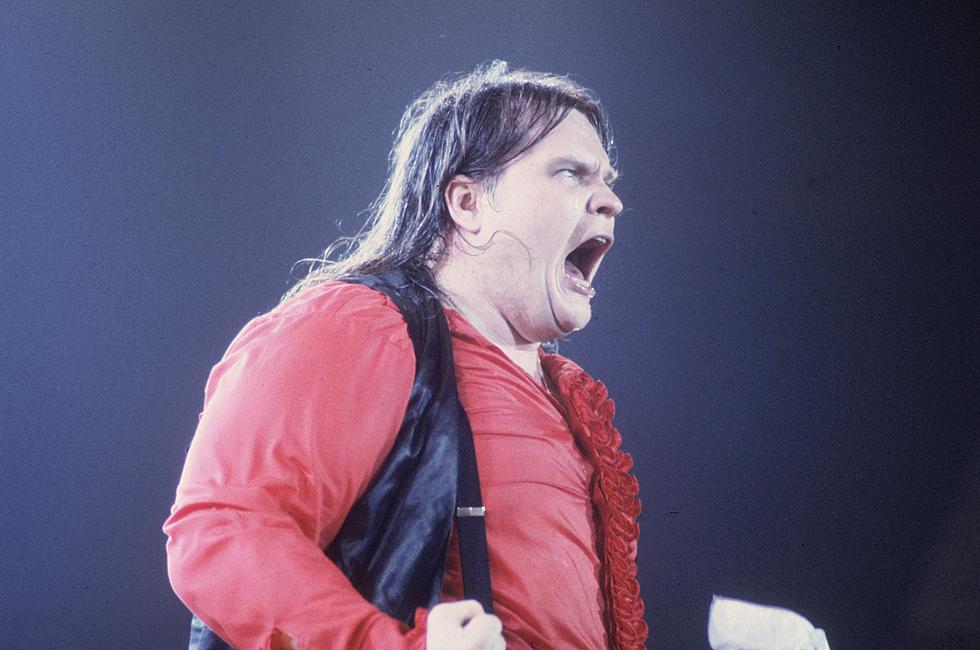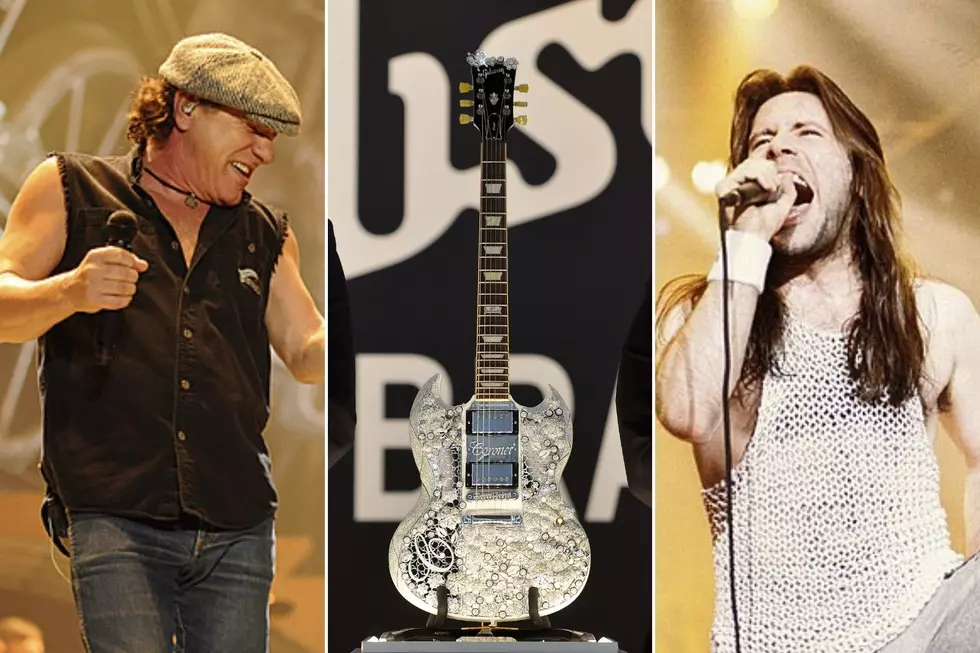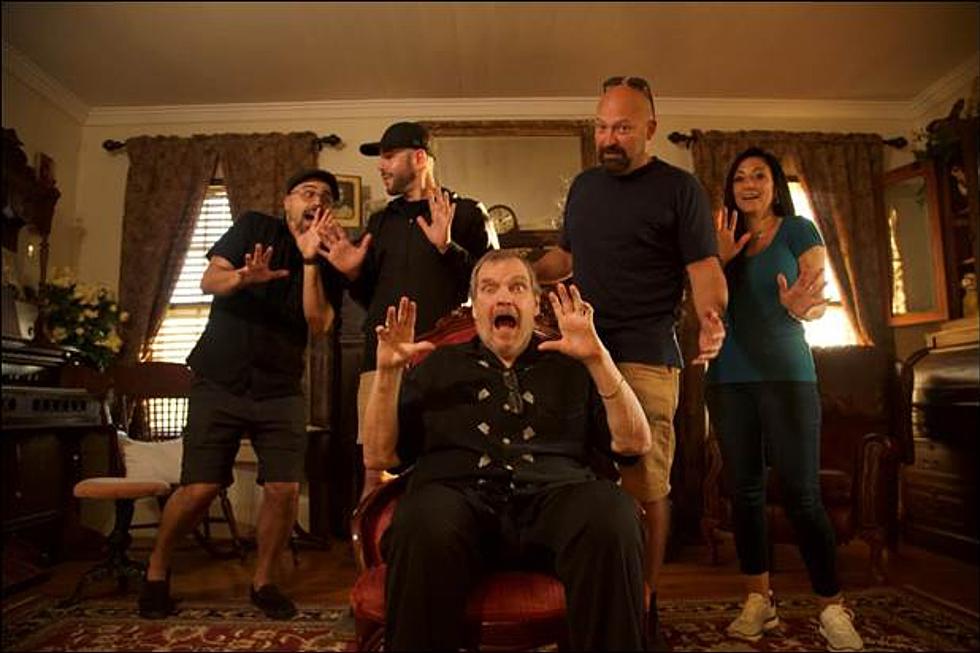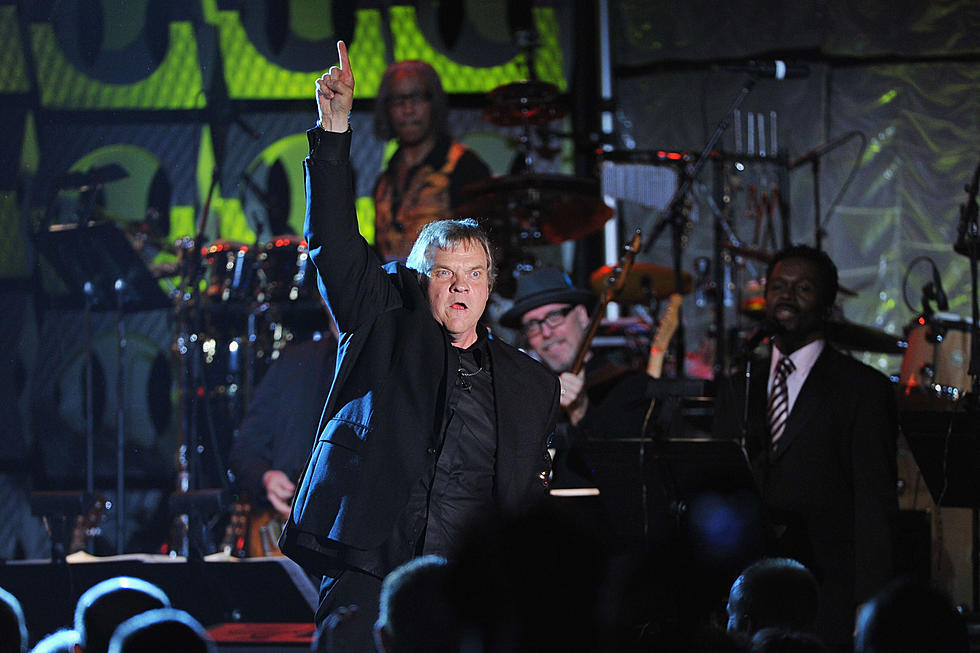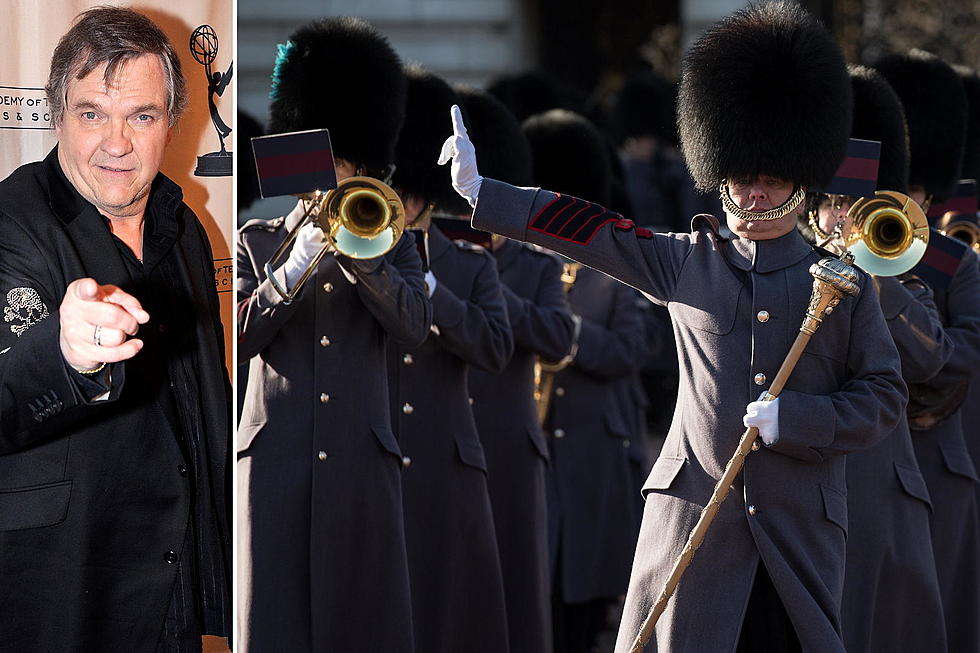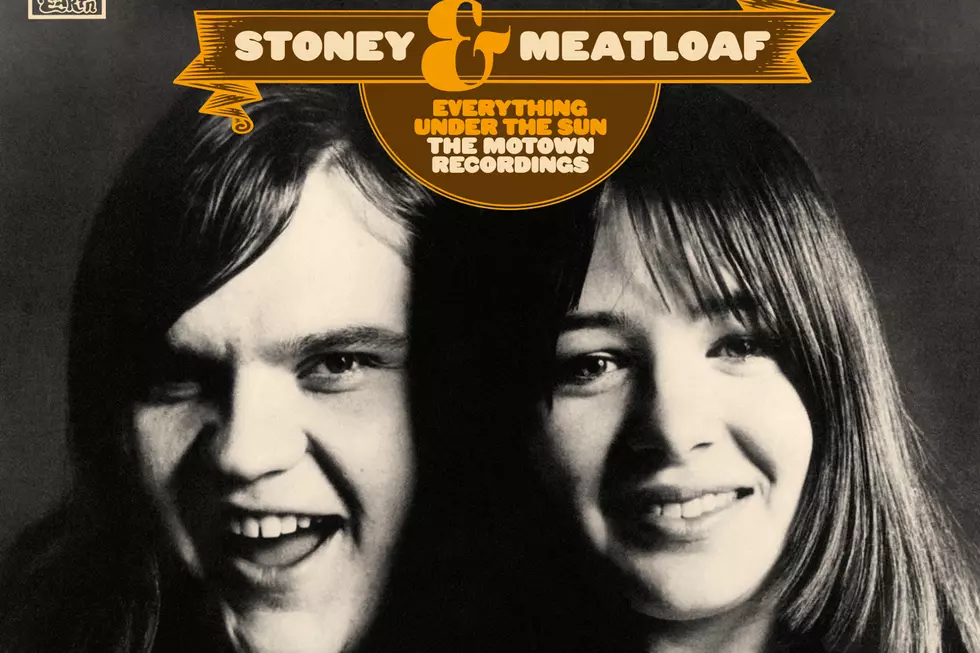
When Meat Loaf Was a Motown Singer

For more than five decades, the idea of Meat Loaf of Motown has been a legend of almost mythic proportions. But it is, in fact, the truth, and was long a source of pride in the late singer's career.
His short tenure at the iconic Detroit label is being celebrated again with the recent release of Everything Under the Sun -- The Motown Recordings, a collection of the material he and Shaun "Stoney" Murphy laid down during 1971. It features the entire Stoney & Meatloaf album released during October of that year for Motown's Rare Earth subsidiary, along with a wealth of additional material recorded during and shortly after.
"As time goes on, it just seems more and more surreal that I was on Motown, but I love that," Meat Loaf told UCR last October, three months before his death Jan. 20 at the age of 74. "I got my rock 'n' roll roots in Detroit. It was a great scene. And then to be on one of the greatest labels in the world...it still seems unreal."
Listen to 'The Way You Do the Things You Do' by Stoney & Meatloaf
Though he hailed from Texas, Meat Loaf was actually well-established in Detroit by the time Motown came calling.
He had moved from California to Michigan during 1967, after his band Meat Loaf Soul failed to ignite and bandmate Pete Woodman, who had been part of the Bossmen from Flint, suggested relocating. There, with help from the wife of Dow Chemical's chairman, they started the band Popcorn Blizzard (later the Floating Circus), which recorded and played in the region, including at Detroit's legendary Grande Ballroom.
"Meat Loaf was very easy to work with, very professional and hard-working," the late Grande founder Russ Gibb recalled many years later. "You know what he reminded me of -- and I don't mean this in an insulting way -- but a damn good bar musician. You name it, and he'd serve it up. Some of the guys were very limited but Meat Loaf would give the customers what they wanted."
Murphy, who was singing in Detroit bands such as Wilson Mower Pursuit and Jack Wade & the Soul Searchers, first met Meat Loaf on that circuit and they became passing acquaintances. "There were so many great local bands, and we'd play all the same festivals," she recalls. "I just remember he was one of the great singers on the scene...and a hell of a nice guy."
They would not become Stoney & Meatloaf for a few more years, however, when both were appearing in a production of the musical Hair at Detroit's Vest Pocket Theater in 1971. Meat Loaf led the company through the opening "Aquarius," while Murphy's rendition of "Easy to Be Hard" was a nightly showstopper. Russ Terrana, an engineer at Motown, saw the production and came back raving to his twin brother Ralph, a producer and songwriter who was working primarily with the Rare Earth imprint.
"The next morning [Russ] said, 'You've got to go see Hair. There's this guy, Meat Loaf, and this female singer Stone. Check 'em both out. They're fantastic,'" Ralph tells UCR. "So I made arrangements to see it, and sure enough, he wasn't kidding. We went to Harry Balk, who was our boss, and he wanted to hear something. So we made a demo tape and Harry heard it and said, 'Go get 'em!'
Listen to 'Game of Love' by Stoney & Meatloaf
"The intention was they were going to be two separate artists," continues Terrana, who became close friends with Meat Loaf and got together to play games and eat candy on Friday nights. "They both had these really big voices, and the more we thought about it we said, 'Let's make this a duo,' and they became Stoney and Meatloaf." (His name was spelled incorrectly on pressings of the album, and on his contract with the label.)
Meat Loaf, for his part, claimed credit for the duo idea. "I was the one who said, 'Why don't we do a duet record?' and they said, 'That's exactly what we were thinking.' I said, 'With Stoney' and they said, 'That's exactly what we were thinking.' So I went with Stoney and said, 'They want to do a record with us' and she said 'OK' and we did it. It was very cool."
Murphy, who was pregnant at the time, adds: "I was looking to get a record deal, and who's going to turn down Motown? It was thrilling to do anything over at Hitsville."
Songs for the album were written by Ralph Terrana and the album's other co-producer Mike Valvano, along with Mike Campbell, Ray Monette and Patti Jerome. The set also included a cover of Ike & Tina Turner's "Game of Love" and the traditional "Jimmy Bell." Motown's famed Funk Brothers, including guitarist Dennis Coffey and bassist Bob Babbitt, played on the sessions, though there are differing memories about whether Stevie Wonder was involved. Meat Loaf contended that Wonder played piano on the track "She Waits By the Window." "Stevie Wonder was recording before us; he was working on (Music of My Mind), so when we walked in the studio we heard him and were like, 'Whoa, what the...' It was something completely different.' And then he's still kinda sitting there and helped us on 'She Waits By the Window." Terrana and Murphy, however, say Wonder was did not play on the album.
There were moments of head-bumping, too. Stoney and Meat Loaf recorded a version of "Who Is the Leader of the People" with Norman Whitfield, which they liked but was eventually given to Edwin Starr to record and release. "The head of A&R was like, 'Oh, no, we're not releasing that with them' and he gave it to Edwin Starr," Meat Loaf remembered. "If you listen to Edwin Starr's version, you hear me and Stoney through the whole song. We're right there. They used our [backing] vocals but took off our lead vocals and changed the mix with Edwin on it." Motown also wanted to take off "What You See Is What You Get," which became the album's first single, and give it to the Supremes, but the Terranas fought the company off.
Listen to 'What You See Is What You Get' by Stoney & Meatloaf
Ralph, meanwhile, says there was also pressure throughout the process to "dump this Meat Loaf character and just record Stoney." The company later flew Murphy out to Los Angeles to record some solo songs, which are included on Everything Under the Sun.
"I don't know what they thought they were doing," Murphy says now. "The first people I was working with were [the Four Seasons'] Bob Gaudio and Artie Fields, who was famous for doing Helen Reddy. If they thought I was gonna sing like Helen Ready, they were disappointed." Terrana adds that "they were trying to make, like, a Diana Ross out of her. But Stoney was a gutbucket kind of singer. She was never going to be a pop singer."
Ultimately Stoney & Meatloaf was an undeserved stiff, and the two singers went their own ways. Meat Loaf appeared in The Rocky Horror Show on stage and then The Rocky Horror Picture Show movie and also wound up singing five songs on Ted Nugent's 1976 album Free For All before breaking through with his landmark Bat Out of Hell album in 1977. In the wake of that success a version of Stoney & Meatloaf was released in 1978 with a ludicrous cover of a meat loaf-faced plated dinner, peas on the side, and billed as “Meat Loaf featuring Stoney and Meatloaf," removing some of Murphy's lead vocals.
Murphy, meanwhile, became a backing vocalist for Bob Seger and Eric Clapton and fronted Little Feat from 1993-2009; She's now an award-nominated blues singer as a solo act.
"It was bad timing," Terrana says of Stoney & Meatloaf's failure. "Things were changing at Motown. More and more people were going to California, and they were talking about closing the Detroit operation. It's hard to break a new act in that kind of environment." Murphy agrees that Stoney & Meatloaf “kind of got lost in the shuffle. But I'm so thrilled [the album] got picked up through the underground, with fans and everything. And I'm thrilled this new version is coming out so people can hear it."
In a bittersweet postscript, Murphy and Meat Loaf had reconnected after he moved to Nashville, and he had even taken part in an open jam she hosted a couple of weeks before his death. "He looked in great health, and he was in great voice," she recalls, and there were plans for the pair to reunite for a duet on an EP Meat Loaf had in motion.
"He was so excited about doing this new record," Murphy says, "and he had a TV [game] show happening and was just in such a good place. I went out and helped him find some producers in Nashville, and there were some [musicians] at the jam he really wanted to implement into the new record. He had all these plans and was really feeling up, which made [his death] even sadder."
Meat Loaf Through the Years: Photo Gallery
More From US 103.1 FM
